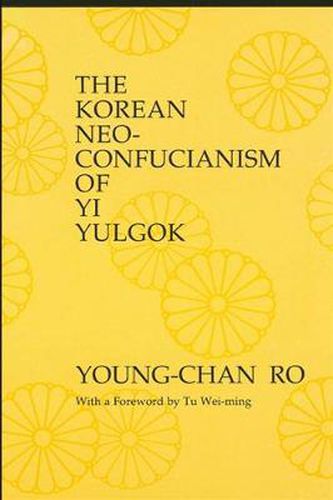Readings Newsletter
Become a Readings Member to make your shopping experience even easier.
Sign in or sign up for free!
You’re not far away from qualifying for FREE standard shipping within Australia
You’ve qualified for FREE standard shipping within Australia
The cart is loading…






This book explores the philosophical and religious dimensions of Korean Neo-Confuciansim as expounded by one of the foremost Korean Neo-Confucian thinkers, Yi Yulgok (1536-1584). Yulgok’s creative interpretations reformulate some fundamental issues of Confucian philosophy. This book explores the significance of the fundamental assumption which underlies the entire system of Yulgok’s Confucian thought. That philosophical assumption is characterized by the author as ‘non-dualistic’ and ‘anthropocosmic’. It is a unique aspect of Korean Neo-Confucianism which leads to a new way of understanding the Confucian world view and spirituality. This ‘non-dualistic’ vision sheds a new and critical light on the dialectical framework of thinking at work in Western formulations of understanding the ultimate reality, nature, the universe, and human being. The ‘anthropocosmic’ vision in this respect will challenge fundamental assumptions of Western theological formulation and suggest a new understanding of human nature and the universe. A ‘non-dualistic’ and ‘anthropocosmic’ interpretation of Yulgok’s thought is a fruitful way of approaching the Korean way of thinking and of coming to grips with one Neo-Confucian mode of attaining human self-understanding.
$9.00 standard shipping within Australia
FREE standard shipping within Australia for orders over $100.00
Express & International shipping calculated at checkout
This book explores the philosophical and religious dimensions of Korean Neo-Confuciansim as expounded by one of the foremost Korean Neo-Confucian thinkers, Yi Yulgok (1536-1584). Yulgok’s creative interpretations reformulate some fundamental issues of Confucian philosophy. This book explores the significance of the fundamental assumption which underlies the entire system of Yulgok’s Confucian thought. That philosophical assumption is characterized by the author as ‘non-dualistic’ and ‘anthropocosmic’. It is a unique aspect of Korean Neo-Confucianism which leads to a new way of understanding the Confucian world view and spirituality. This ‘non-dualistic’ vision sheds a new and critical light on the dialectical framework of thinking at work in Western formulations of understanding the ultimate reality, nature, the universe, and human being. The ‘anthropocosmic’ vision in this respect will challenge fundamental assumptions of Western theological formulation and suggest a new understanding of human nature and the universe. A ‘non-dualistic’ and ‘anthropocosmic’ interpretation of Yulgok’s thought is a fruitful way of approaching the Korean way of thinking and of coming to grips with one Neo-Confucian mode of attaining human self-understanding.